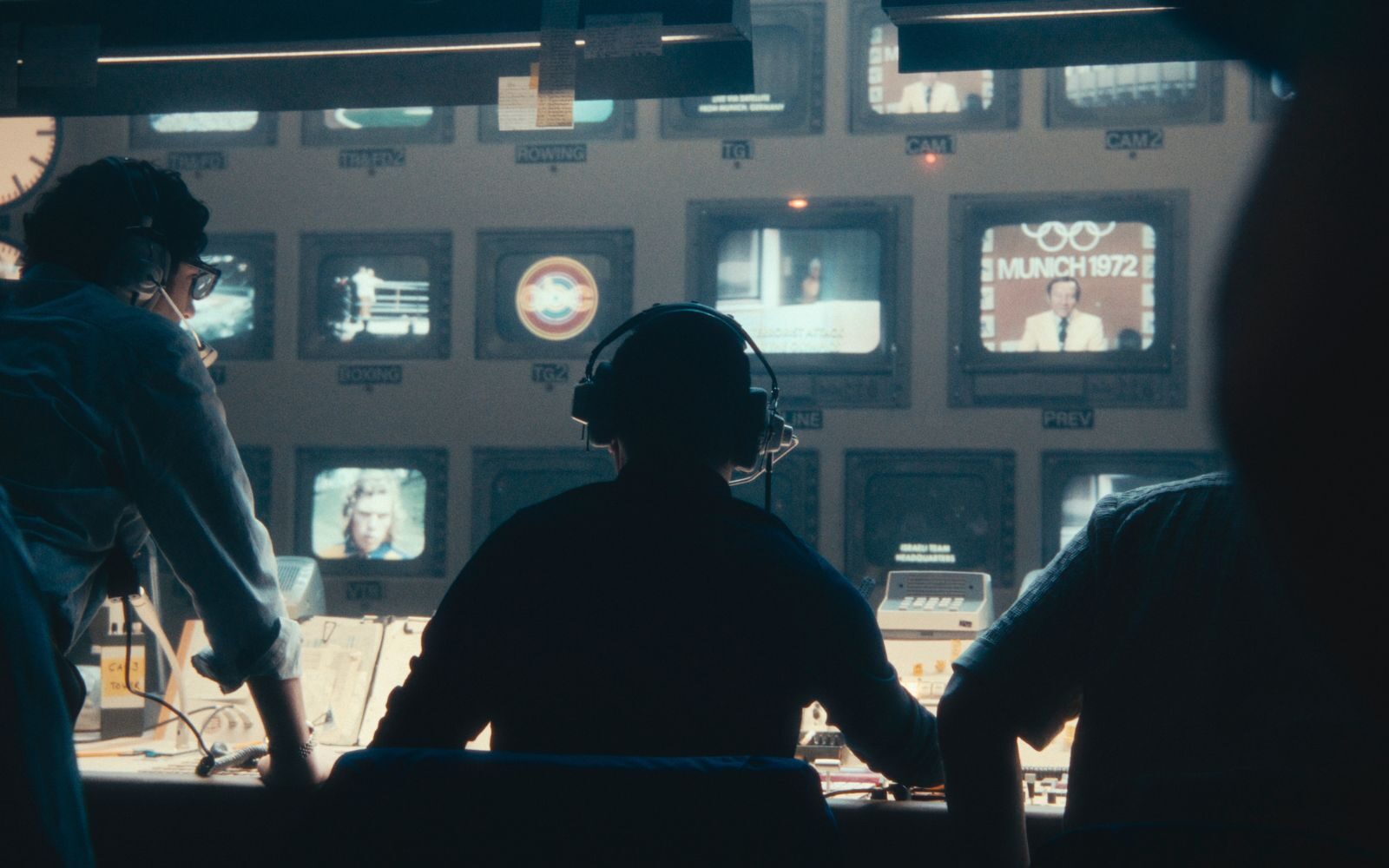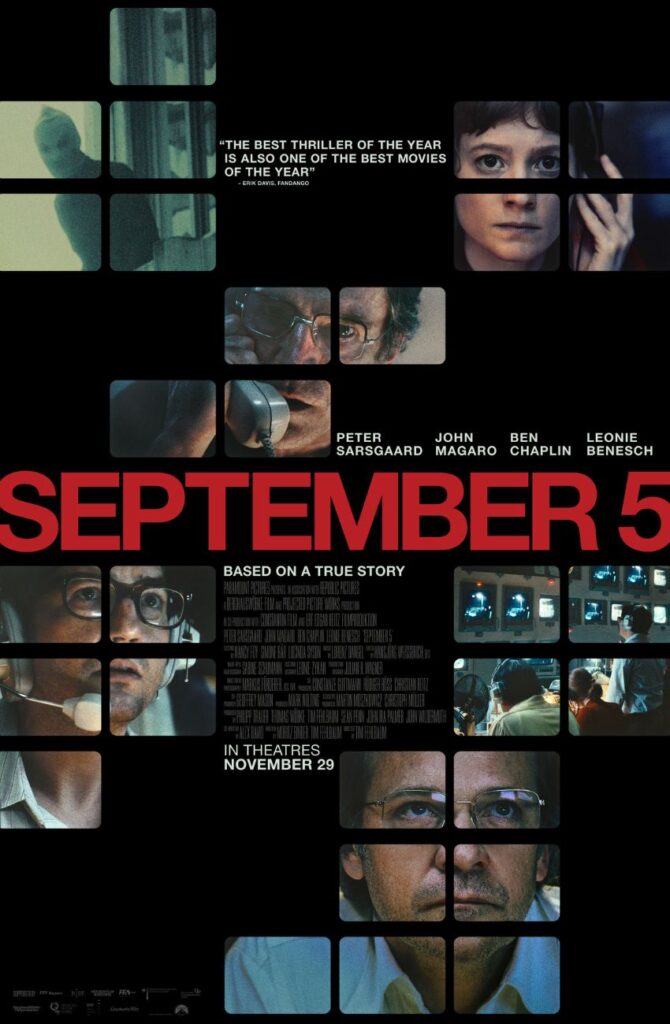
September 5: A Thrilling Chronicle of Journalism Under Siege
Tim Fehlbaum’s gripping recreation of the 1972 Munich Olympics attack through the lens of ABC Sports.
Directed by Tim Fehlbaum
by Prabhjot Bains
- Published on
Early on in Tim Fehlbaum’s September 5, the thrill of Olympic competition is distilled into one response: “It’s not about politics; it’s about emotions.” It’s a sentiment that, for better and for worse, underpins Fehlbaum’s gripping recreation of the ABC Sports broadcast that covered the 1972 Munich Summer Olympics attack that resulted in the deaths of 11 Israeli athletes. While there exists a more nuanced and probing version of September 5—that actively engages with the geopolitical weight of its historical crisis—the iteration Fehlbaum settles on still impresses with its taut, sobering depiction of the 17-hour tribulation the ABC Sports team underwent to bring the event to light.
September 5 opens with the exec Roone Arledge (Peter Sarsgaard) being relieved for the night by budding TV producer Geoffrey Mason (John Magaro) when Black September militants take most of the Israeli Olympic team hostage in exchange for the release of 200 Palestinian prisoners. An athlete will be executed every hour if their demands are unmet.
With only minor sports coverage under his belt, the rookie Mason is thrust into the centre of an increasingly grave situation. He enlists the help of mentor Marvin Bader (Ben Chaplin) and German interpreter Marianne (Leonie Benesch) to not only get cameras and reporters as close to the Olympic Village as possible, but also to convince ABC’s higher-ups of the team’s journalistic integrity. As the night unfolds, the ramshackle team works to perilously stitch together the world’s first live broadcast of what many were labelling as a “terrorist attack.”
Shot with a verité, docu-style lens à la Paul Greengrass, September 5 quickly immerses us in the team’s largely improvised, news-breaking process. It’s fascinating to witness the crafty and daunting ways each member not only ensures the broadcast remains on air, but also continues to unflinchingly portray the shock and awe of the crisis. Sturdy performances from Magaro and Sarsgaard tread the slippery slope of live news coverage, navigating the importance of capturing an unfiltered truth versus a sanitized one.
Fehlbaum’s film is most interesting, though, when it explores the German government’s desperate, bungled attempts to depict itself as rescuing Jews—a marketing inversion of its Holocaust past. It’s a strain of layered thought September 5 continues when it forces us to fathom how life often continues unphased by the unfathomable acts unfolding around it, much like how the Holocaust occurred under the world’s apathetic noses. It’s a pointed idea that rings louder when the film highlights how the 1972 games continued during and after the attacks. While the film’s apolitical stance can be rightfully construed as the type of safe choice the ABC crew tirelessly avoided to capture the crisis, it doesn’t render September 5 any less riveting or illuminating.
September 5 is in theatres on December 13


